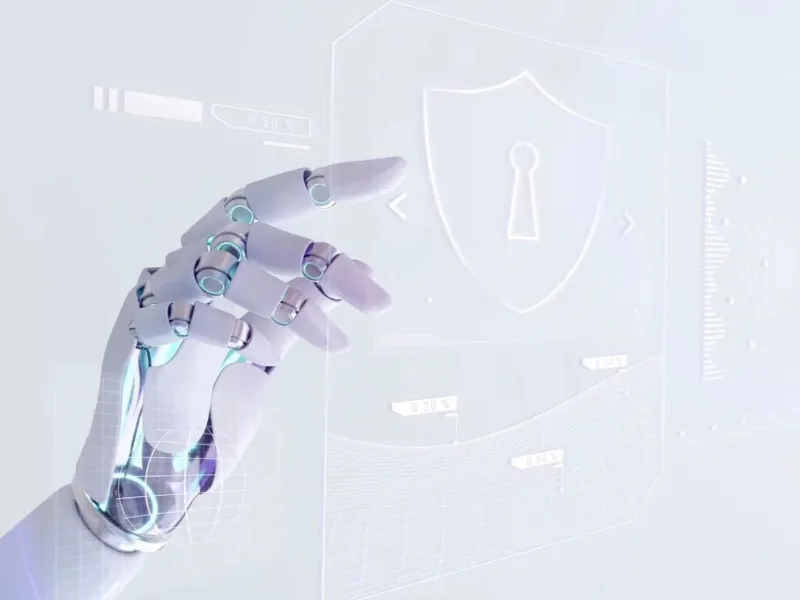- AI significantly enhances malware detection in cybersecurity by leveraging machine learning algorithms to analyse behavioural patterns, enabling the detection of new malware variants.
- AI algorithms excel in phishing detection by analysing email content and structure, identifying potential attack patterns, and effectively preventing the spread of phishing attacks.
- AI-based security log analysis improves cybersecurity operations by analysing vast amounts of data in real-time, identifying vulnerabilities and threats, and enhancing the efficiency and accuracy of security analysis.
AI (artificial intelligence) has become a game-changer in the field of cybersecurity. By providing advanced technology to detect and mitigate network threats, it has altered the approach to addressing cybersecurity issues. The application of AI technology in cybersecurity encompasses multiple aspects, from malware detection to real-time threat response, profoundly impacting the landscape of cybersecurity.
Application of AI in cybersecurity
AI plays a crucial role in malware detection. Traditional signature-based detection methods are effective against known malware but fall short against new, unknown malware variants. AI-based solutions leverage machine learning algorithms to analyse the behavioural patterns of malware, enabling the detection of new malware variants and enhancing the accuracy and coverage of malware detection.
Phishing is another common form of cyber attack, where AI demonstrates its advantages in detection. AI algorithms can analyse the content and structure of emails, identify potential phishing attack patterns, effectively prevent the spread of phishing emails, and protect users from the threat of phishing attacks.
Also read: Microsoft hires former Meta exec to bolster AI supercomputing team
Security log analysis is a vital part of cybersecurity operations. Traditional methods rely on rule-based systems, which are limited in identifying new threats. AI-based security log analysis utilises machine learning algorithms to analyse a vast amount of security log data in real-time, identify potential security vulnerabilities and threat indicators, and improve the efficiency and accuracy of security analysis.
Network behaviour analysis is a technique used to detect abnormal network behaviour. Traditional methods rely on rule-based systems, limited to known threat patterns. AI-based network behaviour analysis, through machine learning algorithms, can identify new, unknown network threat patterns, achieving more comprehensive and in-depth monitoring of cybersecurity.
Also read: What AI tool can generate images?
AI transforms the cybersecurity landscape
The application of AI not only enhances the efficiency and accuracy of cybersecurity but also changes the cybersecurity landscape. Firstly, AI technology enhances the real-time detection and precision of threats, enabling cybersecurity teams to quickly detect and respond to threats, reducing the losses caused by security vulnerabilities.
AI technology elevates the intelligence level of cybersecurity. Traditional security systems rely on manually configured rules and policies, while AI technology can automatically learn, adapt, and optimise security policies, achieving automated management of cybersecurity and reducing the manpower costs and workload of security management.
In addition, AI technology changes the response mechanism of cybersecurity. Traditional security response typically relies on manual operations and human analysis, while AI technology enables automated response to cybersecurity threats, swiftly and accurately blocking attack behaviours, improving the response speed and efficiency of cybersecurity.
AI’s application in cybersecurity brings significant changes, making cybersecurity defence more intelligent, automated, and comprehensive. However, AI technology itself faces challenges such as data privacy and attackers leveraging AI. Therefore, alongside the development and application of AI technology, strengthening the formulation and regulation of relevant laws and regulations is also necessary.

